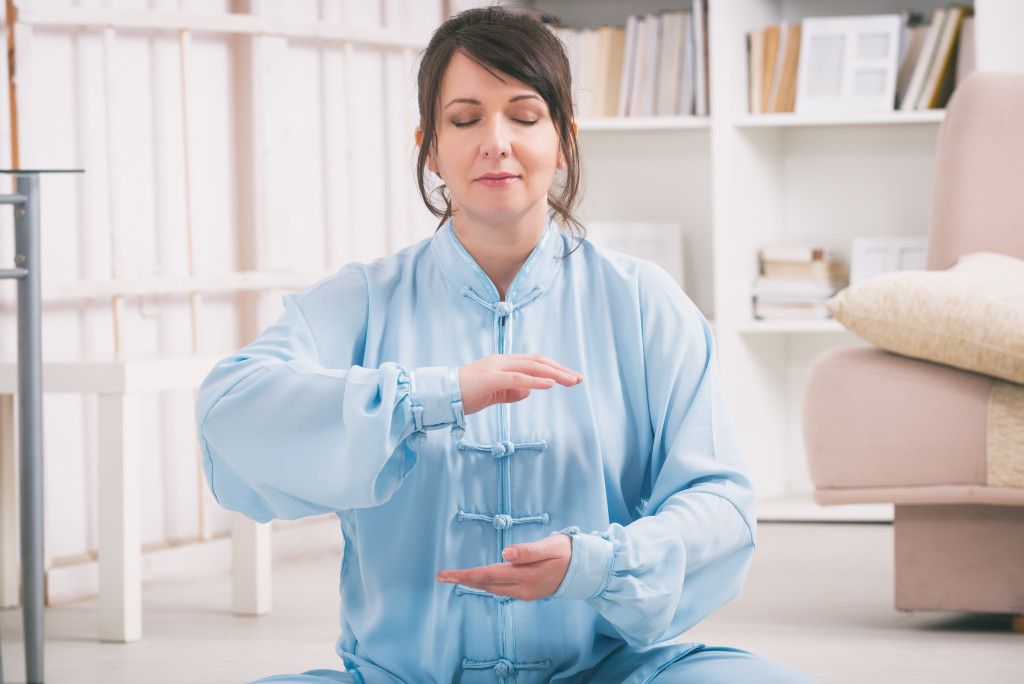Respiratory problems in the United States have increased throughout the years. One of the leading problems is because of pollution. Air pollution can affect your respiratory system, and it can also cause other health problems. Another reason is due to smoking. Cigarette smoke has more than 4,000 chemicals in it, and many of them are poisonous. As a result, smoke from cigarettes can damage your lungs and airways.
The recent COVID-19 virus also has respiratory symptoms, including a dry cough and shortness of breath. If you have respiratory problems, there are things you can do to help yourself feel better.
Exercise
Interestingly enough, exercise plays a fundamental role in dealing with respiratory problems. However, not all types of exercise can deal with it. For example, intense activities such as running can make your respiratory issues worse. The best exercises for respiratory problems are low-impact exercises. Here are some of them.
Tai Chi
Tai chi is becoming a common exercise for all ages in the United States. The good thing about tai chi is that you can do it at any pace. You don’t have to push yourself to do it fast; you can do it slowly as your respiratory problems allow. Tai chi is a gentle way to increase your lung capacity and deal with respiratory problems. Those who don’t have the time to visit a physical class can opt for digital tai chi classes. These classes teach you to do the exercises in the comfort of your home.
Pilates
Pilates is another low-impact exercise that is excellent for respiratory problems. Pilates helps improve your posture and strengthens your core muscles. It also helps improve your breathing by teaching you how to use your diaphragm correctly.
Swimming
Swimming is one of the best exercises for respiratory problems because it helps increase your lung capacity. When you swim, your body works against the water’s resistance. This resistance helps to make your lungs work harder, which in turn increases their capacity. Swimming also helps to improve your breathing technique.

Avoid Air Pollution
As mentioned earlier, air pollution is one of the leading causes of respiratory problems. To avoid it, you need to stay indoors as much as possible when the pollution levels are high. You can also use an air purifier in your home to help reduce the number of pollutants in the air.
Wear a Mask
When you go outside, wear a mask to protect yourself from air pollution and other particles in the air that can aggravate your respiratory problems. Another way to protect yourself from air pollution is to avoid crowded places.
Avoiding Crowded Places
The United States has many crowded places, such as malls, movie theaters, and concerts. However, if you have respiratory problems, it’s best to avoid these places. This is because the air in these places is often polluted with different particles that can aggravate your condition. It can also help you avoid the COVID-19 virus.
Use Air Fresheners
Air fresheners are a great way to improve the air quality in your home. They can help reduce the pollutants in the air and improve your respiratory problems.
Avoid Smoking
Smoking is the leading cause of respiratory problems. If you smoke, the best thing you can do is to quit. However, it’s never easy to give up smoking. But some ways can help. Here are some of them.
Therapy
Sometimes there’s an underlying reason as to why you smoke. It could be stress, anxiety, or depression. In this case, therapy can be helpful. A therapist will help you understand your smoking habits and why you do them. They can also provide techniques to help you deal with any underlying issues.
Support groups
There are many stop-smoking support groups available. These groups provide moral support and motivation to quit smoking. You’ll also get tips and advice on how to quit from people who have successfully done it themselves.
Medication
Various medications can help you quit smoking. These include nicotine replacement therapy (NRT), bupropion, and varenicline. NRT provides your body with small doses of nicotine to help ease withdrawal symptoms. Bupropion and varenicline work by blocking the effects of nicotine in your brain.
Have a Better Diet
Your diet can affect any respiratory problems you might have. This is because the foods you eat can either help or aggravate your condition. You should eat plenty of fruits and vegetables to improve your respiratory problems. These foods are high in antioxidants, which can help reduce inflammation in your lungs. You should also avoid processed foods and sugary drinks. These foods can worsen your respiratory problems.
Respiratory problems have become all too common nowadays. However, by following the tips above, you can easily deal with them! It can also lead you to healthier lives away from diseases and problems.

